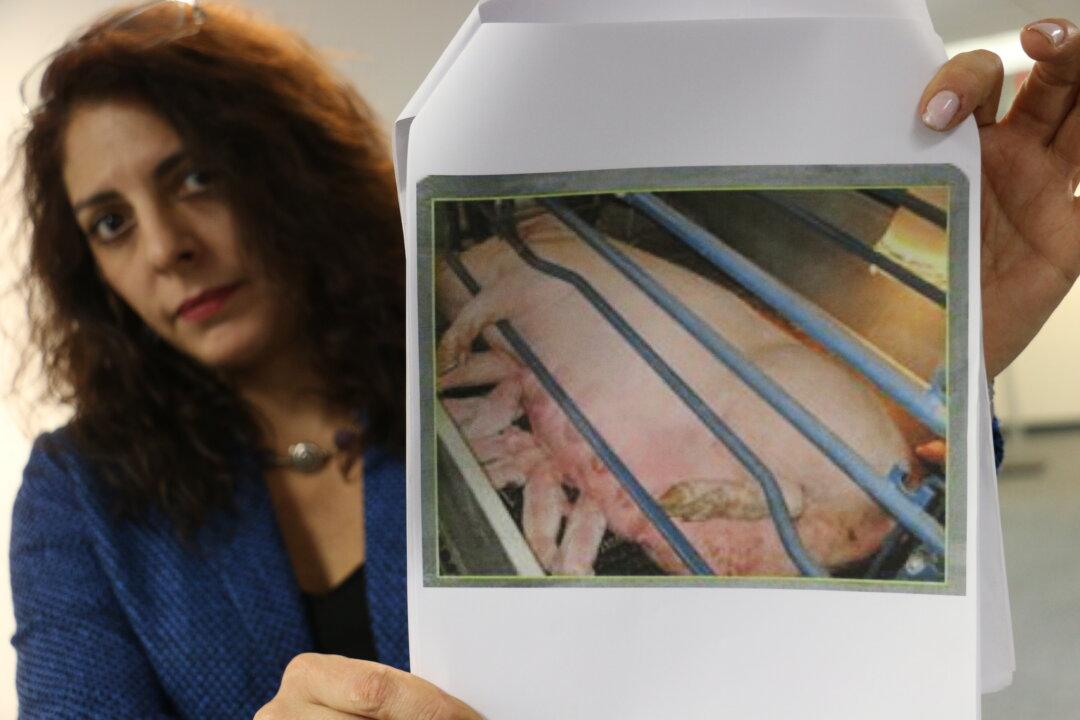NEW YORK—At a public forum for animal rights advocates in New York on Friday, New York Senator Tony Avella needed little convincing that much is still needed to be done to protect animals from human cruelty.
“The pictures really speak a thousand words here,” said Nora Constance Marino, showing pictures of sows in crates so small they cannot move and rows of veal calves stuck in small cages. “The way we are confining these animals on factory farms is beyond inhumane, beyond cruel, it is unconscionable. It is egregious.”
Constance Marino is asking New York to be the 10th state to pass a bill that would outlaw this type of confinement of farm animals.
“Am I on that bill?” Avella asked. “I’ll sign on as a cosponsor.”
He gave a similar response whether the issue was a carriage horse ban, overcrowded humane societies, wild animals in zoos and circuses, or Foie Gras.
“The last producer of Foie Gras is right here in New York State, Hudson Valley Foie Gras,” said Donny Moss, the producer of “Blinders,” a movie about carriage horses in New York City. “If we could shut this down it would have a trickle effect on this delicacy of despair.”
Avella says he has already introduced a bill in the Senate that targets this industry.
Fois Gras, a French delicacy, is made by force-feeding a goose until its liver explodes. This practice has been banned in California, the only other state in the US where two Foie Gras Farms operated.
Avella’s bill seeks to ban force-feeding of all animals, which would effectively squash the industry.
As proactive as Avella has been in introducing legislation to protect animals, it will never gain widespread support, he warns, without support.
“The animal rights community needs to start working together more than it has in the past,” he said to the animal advocate groups. “What really matters is when an elected official hears from you.”
Being a minority in the Senate, Avella says, the support has to come from the electorate if politicians are going to take these matters seriously. Otherwise, he says the farm lobbyists are always going to come out first.
In New York, the tension comes between upstate New York, which has a big agriculture industry, and downstate, which has hardly any agriculture. Upstaters complain that downstaters are jeopardizing their livelihood by trying to pass laws that would cut their profits.
Holly Kellum is a special correspondent in New York.





